Climate watch
Ahead of COP26, University experts share their views on the importance of the climate talks, the complex challenges that lie ahead in the fight to tackle climate change and some encouraging signs of progress.
As the world waits with anticipation for the major climate conference to take place in Scotland this autumn, Edinburgh Professors Dave Reay, Paul Palmer and Liz Grant discuss the need for a green recovery from the Covid-19 pandemic, the growing importance of satellite observations in climate science and an imperative to consider health impacts in the process of addressing climate change.
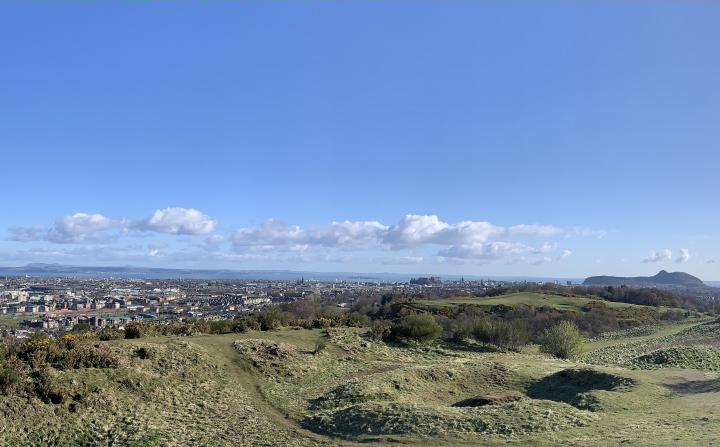
A need for international action
Five years on from the historic Paris Agreement, COP26, the United Nations' climate change conference, is set to take place in Glasgow this November. The event, postponed for a year because of the Covid-19 pandemic, will see more than 190 world leaders arrive in Scotland for 12 days of talks aimed at reaching agreement on how to tackle climate change.
Expressing concerns that many involved in efforts to tackle the climate emergency share, Dave Reay, Professor of Carbon Management, says there still has not been enough international action, with commitments from nations not matching up to targets agreed in 2016. The Paris Agreement set out a roadmap for keeping global temperature increase below 2°C, with the ambition of keeping it to 1.5°C.
Despite this, he remains optimistic about what COP26 could deliver: “We’re still off target, but there has been movement in the right direction. A lot has changed since last year, including the US administration, which has really helped to revitalise things. Alongside that, a number of the big emitters are already committing more actions, and they’re expected to bring some pretty barnstorming stuff to COP26.”
The commitment to succeed
“It’s a key opportunity for all nations to increase their ambitions and get us back on track,” says Professor Reay, who is also Director of the Edinburgh Climate Change Institute (ECCI).
He explains that for many, the success of COP26 will hinge on three things: money, short-term commitments and long-term pledges: “For years, one of the biggest issues of contention has been how climate finance flows. Back in 2009, rich nations agreed to provide $100bn per year to help vulnerable nations tackle the challenges of climate change – a commitment that was renewed at the most recent G7 meeting – but the money isn’t there yet. So, a lot of people will judge COP26 on that basis: does it deliver the $100bn?”
“It will also be judged on whether national commitments for the next decade will really put us on track to meet the Paris climate goals,” Professor Reay continues. “As well as those, people will be looking at countries’ long-term commitments, and how they stack up in terms of achieving the key targets of halving emissions globally by 2030 and reaching net zero by 2050.”

Green recovery from Covid-19
There is no escaping the fact that these crucial decisions about actions to tackle climate change are being made during a pandemic, which has had unprecedented impacts on almost all sectors of society. Consequently, a great deal of Professor Reay’s work over the past year has involved advising Scottish and UK governments on how to realise a green recovery, in particular, emphasising the benefits of investing in young people, skills and training.
“It is crucial that we recover from the pandemic in a green way, so a focus on green skills, education and career paths is vital,” says Professor Reay. He explains that there needs to be a trajectory where young people have access to education and training that will prepare them for entry into green jobs.
At the same time, he stresses the importance of providing people who have built careers in sectors like oil and gas with opportunities to reskill and switch to renewables, so they can maintain their livelihoods and be a part of the transition to net zero: “We have an imperative to help ensure that people have the chance to be part of the transition.”
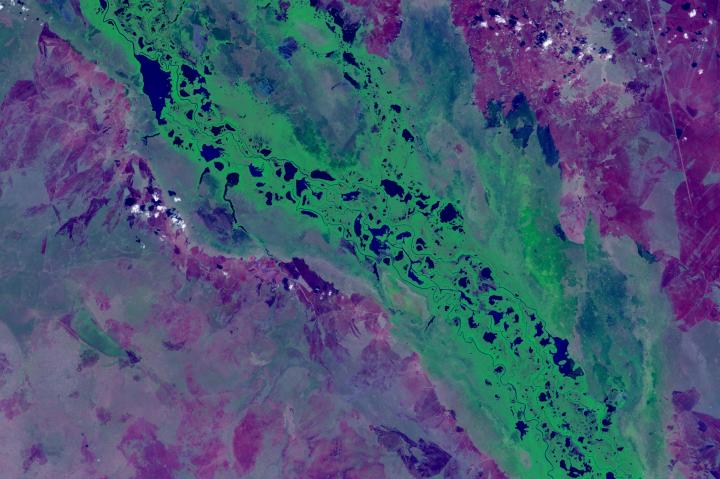
Satellite insights
The focal point of many discussions at COP26 will undoubtedly be the levels of harmful emissions in the Earth’s atmosphere. In recent years, an area of research that has grown in importance involves using satellite technology to investigate emissions of carbon dioxide, methane and other greenhouse gases.
Research led by Professor Paul Palmer is helping scientists and policymakers to better understand key sources of emissions and where they go once they are released into the atmosphere.
“These data haven’t been available for very long, about 10 years or so, but we’re at a point now where they are starting to reveal all kinds of new insights about how Earth’s climate is changing,” says Palmer, who is Professor of Quantitative Earth Observation. “It’s enabling us to understand what’s going on in parts of the world where there have been few or no previous measurements, and uncovering previously unknown parts of the global carbon cycle.”
Recent work by Professor Palmer and his team has shown that the Sudd wetlands in South Sudan periodically emit huge amounts of methane into the atmosphere, accounting for one third of an increase in global levels of the gas between 2010 and 2016. The team has performed similar analyses looking at variations in carbon dioxide emissions in other parts of the world.
Harnessing new technology
Professor Palmer believes that the rapid developments in satellite technology will play an increasingly important role in efforts to combat climate change, and that it could soon be possible to provide near real-time monitoring of emissions, with data available in only a matter of days to weeks after the measurements have been collected by the satellites.
“Right now, Europe and North America are experiencing major heatwaves, which will have knock on effects on national carbon emissions. These are the sorts of things that satellites will see,” says Professor Palmer. “Without this technology there would be no way to quantify these changes in carbon emissions. Even ten years ago, we simply didn’t have any of this. Our ability to do this kind of work now is just phenomenal and Edinburgh is right at the centre of it.”
On a mission
Professor Palmer explains that the University is involved in almost all of the current international satellite missions looking at atmospheric carbon dioxide and methane. One such mission is a joint French-UK satellite, MicroCarb, which will launch in 2022, becoming the first purpose-built European mission to observe atmospheric carbon dioxide and gauge how much carbon is being absorbed by oceans and forests.
As well as generating data to help monitor progress in meeting the Paris Agreement, MicroCarb will for the first time enable the mapping of emissions across cities, which are major contributors to global emissions.
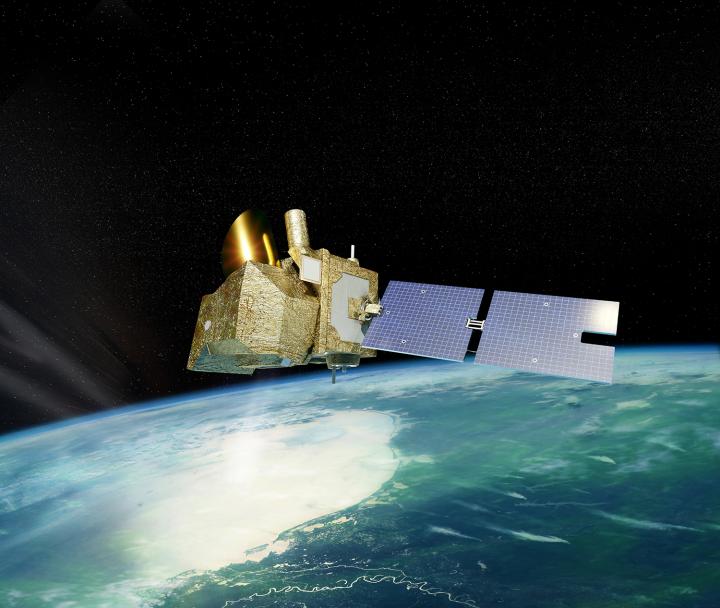
Using data to meet targets
While Professor Palmer is hopeful about what might come out of COP26, he stresses that we still have a long way to go to make major progress on tackling climate change: “We have a lot of information now that tells us about where carbon emissions are coming from and where they’re being soaked up. This knowledge will eventually play a key role in helping us to avoid the worst impacts of climate change, if not at COP26 then at the next COP, because we’ll be at a point where we’re able to use these data more operationally to inform the Paris Agreement and to monitor progress towards meeting national targets for emission reductions.”
He continues: “It’s a zero-sum game, so there’s no point fooling ourselves. There is a strong link between the amount of carbon dioxide and methane in the atmosphere and global heating, so we’ll find out soon enough whether or not countries are meeting their targets.
Making the switch
While there are a number of major challenges to overcome, there are some promising signs of progress, as Professor Palmer explains: “The fact is lots of aspects of our lives are going to have to change. Take domestic heating, for example, which is a big one. Gas boilers will ultimately need to be phased out, which is going to be expensive and disruptive, in part because many buildings aren’t suitable for the sorts of renovations that will be needed.
“At the same time, electric cars are being taken up at a faster rate than we had anticipated, which is a positive sign,” he says. “Hopefully, uptake will continue to improve. That’s partly going to be driven by price, so if the costs can be lowered, or subsidies become available, I think a lot more people would make the switch.”
Global health equality
Addressing climate change inevitably will involve all manner of scientific and technological advances, and while these will of course be central to reaching net zero, Professor Liz Grant says it is vital that we do not lose sight of another key consideration when it comes to actions on the climate: health.
Professor Grant, Assistant Principal (Global Health) and Director of the Global Health Academy, points out that while we now have so much of the science needed to make transformational changes to the energy, industry and transport sectors that is only part of the equation.
“One of the big challenges of addressing climate change could be that we miss the fact that there could be unintended consequences of the measures taken to reach net zero, which would actually exacerbate other inequalities, particularly health inequalities,” says Professor Grant.
She continues: “When we think about future health, climate is going to be one of the biggest factors that changes health outcomes. It’s also going to be one of the biggest factors that influences whether people become and stay healthy, and it will discriminate against those who are poor. Even taking the devastating impact of the Covid-19 pandemic, climate change presents the greatest threat to health this century.”
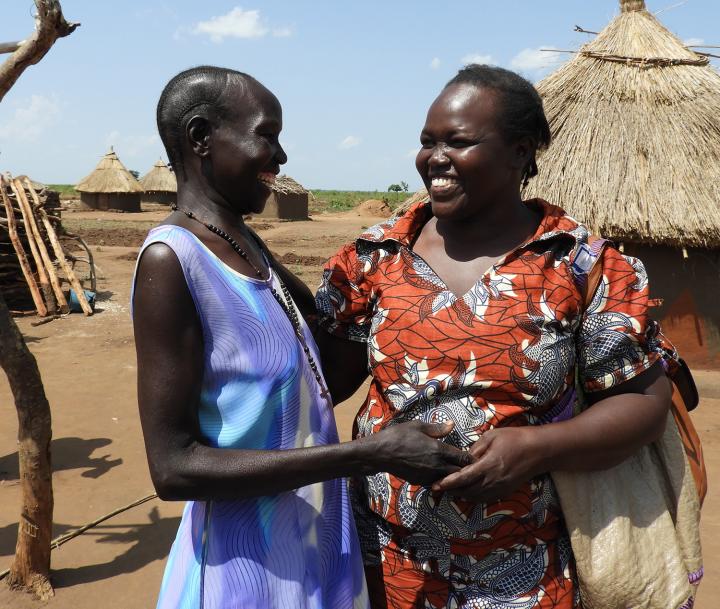
Understanding how climate change affects health
The impacts of climate change on health are seen in three key ways according to Professor Grant. The first are direct effects of extreme weather events, such as injuries, deaths and impacts on mental health. Secondly, ecosystem breakdown caused by climate change can also have indirect effects leading to malnutrition and the spread of disease. Thirdly, extreme weather events are also key drivers of conflict, causes of migration and can lead to poverty – all of which contribute to poorer health outcomes.
Professor Grant will be involved in several events in the lead up to, and during, COP26. These include a high-profile roundtable discussion on air pollution and the climate crisis involving the UK’s special advisor on air quality, Professor Sir Stephen Holgate, and renowned US epidemiologist and paediatrician Professor Phil Landrigan, who led the Global Observatory on Pollution and Health Commission. A meeting involving government ministers will offer an analysis of the health gains from net zero interventions.
Another event involving institutions including Stanford University, Johns Hopkins University, Stellenbosch University and the University of the West Indies aims to demonstrate how health and socio-economic outcomes can be improved by addressing climate change.
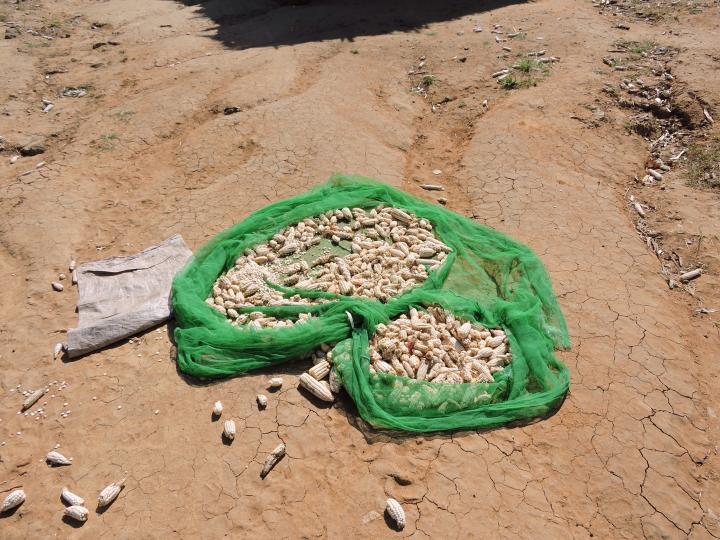
Strategies for a healthier planet
Professor Grant argues that strategies to adapt, to mitigate and to stop climate change can also be strategies that improve health, so promoting healthiness and wellness alongside measures to reach net zero simultaneously could be mutually beneficial.
“For example, phasing out fossil fuels will clean the air, reducing the estimated 3.6 million premature deaths a year from associated respiratory disease,” she explains. “Moving away from high-fertiliser intensive and high-carbon footprint mass-produced food can also improve local fresh food production. Reducing reliance on car transport and encouraging cycling increases lung fitness and boosts mental health. At the same time, tackling things that diminish good health – such as poverty and inequalities – will not only improve health but are important strategies for tackling the drivers as well as the impacts of climate change. Currently, while high-income countries produce the most greenhouse gases, the poor in low-income countries are the ones who bear the greatest burden and the highest mortality.”
In ensuring health impacts are given due consideration in discussions about how to tackle climate change, Professor Grant believes the University could have an important role to play. She says: “Edinburgh could become a university that leads global and national thinking on the intersection between human health and the health of the planet, and the way that the climate crisis is impacting health outcomes.”
Lessons for the future
A great deal is expected – and, many would argue, needed – from COP26, so only time will tell whether the discussions that take place over the 12 days in November are ultimately deemed to have been a success.
Looking ahead, Professor Reay is hopeful that some of the lessons learned from the pandemic might ultimately help to deliver much-needed actions to tackle the climate emergency, be it at COP26 or future climate talks.
“It’s hard to know what would’ve happened without Covid-19,” says Professor Reay. “One of the things the pandemic has made very clear is how important science is, and it has, I hope, reinvigorated trust in science and shown why it’s imperative to take an evidence-based approach to policy. That sort of thing was talked about a lot pre-Covid-19 but the pandemic really put it to the test. A greater understanding of what science is, what evidence-based policy looks like and the dangers of ignoring what the science is telling us, could ultimately help efforts to tackle climate change.”
Written by Corin Campbell, PR & Media Manager in Communications and Marketing at the University.
Find out more
Changing the mindset on climate

